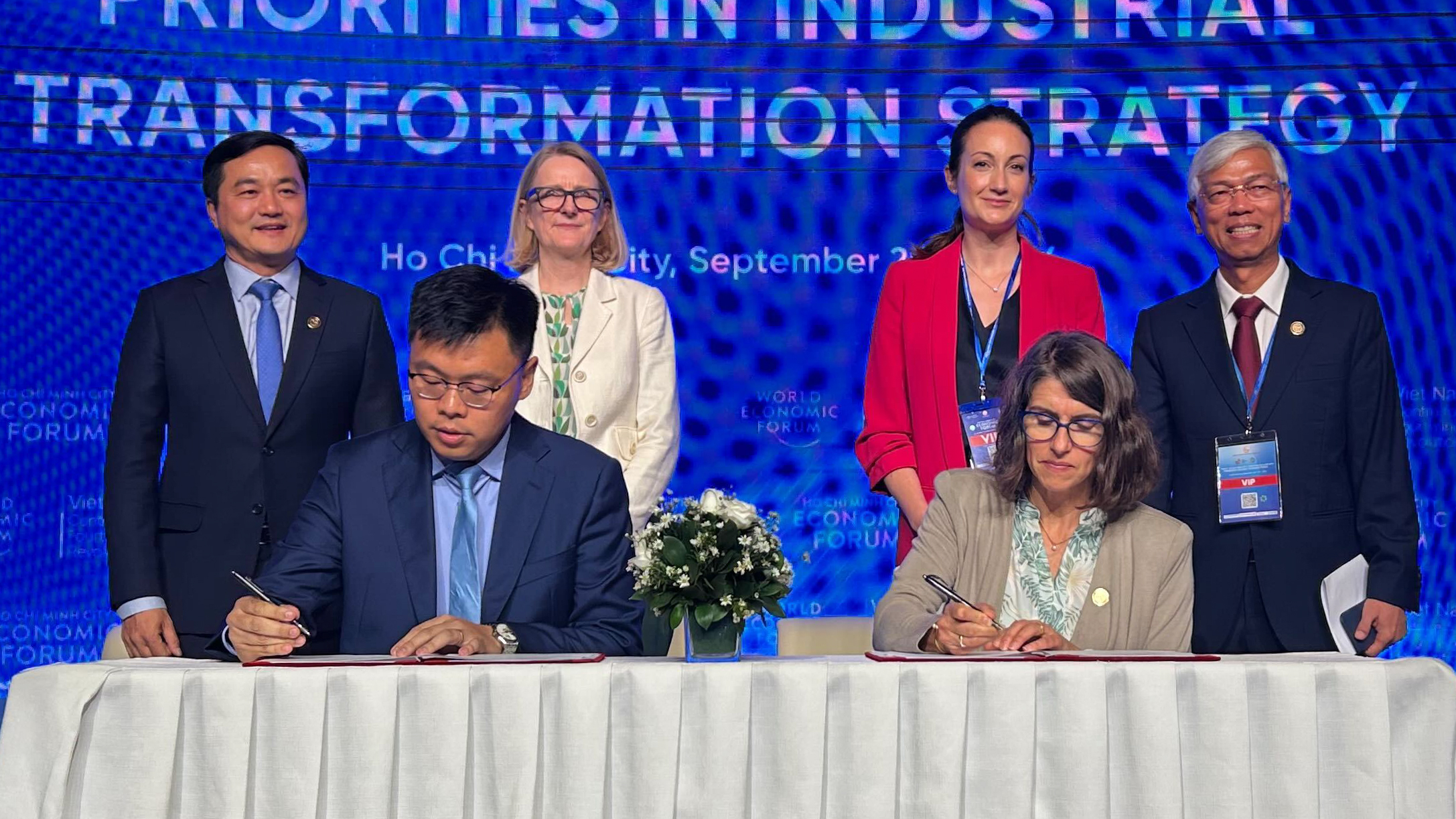The Climateworks Center under Monash University in Australia and the Ho Chi Minh City Institute for Development Studies signed a memorandum of understanding at the Fifth Ho Chi Minh City Economic Forum on Wednesday, aiming to transform the southern metropolis' industrial zones into net-zero emission areas.
The forum opened in Ho Chi Minh City on Wednesday and lasts through Friday, featuring 40 delegations from 16 countries and territories, including Laos, Cambodia, China, Cuba, the U.S., Japan, South Korea, Russia, India, Australia, and others.
The cooperation is meant to help the city attract green investment while advancing Vietnam’s 2050 net-zero emissions goal, according to the center’s recent press release.
With the industrial sector consuming 54 percent of the nation’s energy and emissions rising 140 percent over the past decade, decarbonizing industrial zones is vital.
Vietnam, home to 422 industrial precincts and planning 153 more by 2030, relies heavily on coal and oil.
Coal alone accounts for nearly 48 percent of Vietnam’s energy mix and its consumption is not expected to peak until 2030, despite the growth of renewable sources like wind and solar, the press release said.
Comprehensive transition plans are essential to attract large-scale investment, reduce emissions, and thus draw the interest of global investors and manufacturers looking for decarbonized supply chains.
This transformation is key to establishing net-zero industrial precincts that align with Vietnam’s climate ambitions.
In the next twelve months, Climateworks will work with Ho Chi Minh City to develop a road map for the establishment of net-zero industrial precincts.
By drawing on its experience from industrial decarbonization initiatives in Australia and Indonesia, Climateworks will help facilitate capacity building, policy development, and the mobilization of investment.
The collaboration matches Vietnam’s broader climate and economic strategies.
National policies, such as the National Green Growth Strategy and the Power Development Plan 8, emphasize the need for low-carbon production processes, green industries, and renewable energy adoption.
The Resource Mobilization Plan to implement the Just Energy Transition Partnership (JETP), launched in late 2023, also highlights efforts in achieving national climate goals.
The partnership between Climateworks and the Ho Chi Minh City institute marked a significant step in Vietnam’s industrial decarbonization journey, offering a model that can attract green investment and support the country’s long-term net-zero commitments.
Climateworks Center is a not-for-profit founded by Monash University and the Myer Foundation to bridge the gap between research and climate action.
Like us on Facebook or follow us on Twitter to get the latest news about Vietnam!























































